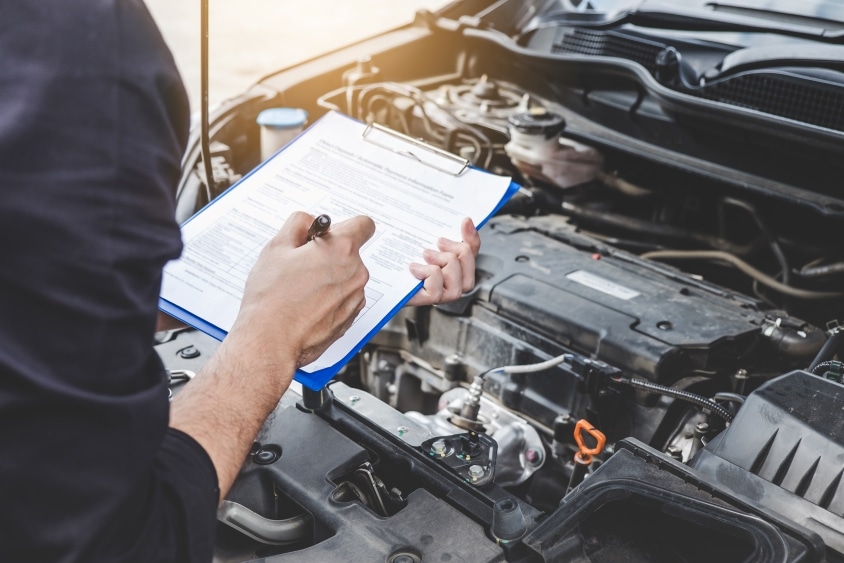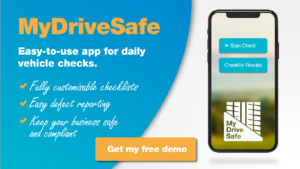LCV vehicle checks: the need-to-knows
Written by: Simon Pavey, Last updated:26th June 2023

Safety is of the utmost importance for all fleets, but it can look different from fleet to fleet. For fleet operators managing light commercial vehicles (LCV) we have put together a quick guide on some of the key things to look out for, including what should be included in your daily vehicles checks, what your servicing schedule should look like and some tools you can use to help manage these.
What vehicles are classed as LCV?
LCV fleet operators can skip ahead, but if you don’t currently have LCVs in your fleet but are expanding, then it’s good to know what exactly counts as an LCV. Light commercial vehicles are carrier vehicles with a gross weight of up to 3.5 tonnes that are used for business purposes, such as last mile delivery.
Generally used for shorter and more localised journeys, common vehicles that would be categorised as LCVs include vans, small trucks and other car-derived load carrying vehicles.
Daily vehicle checks
Daily vehicles checks are a foundational feature of successful fleet operations. As such, laying out clear guidelines for what these vehicle checks should include and the regularity and consistency with which they should be carried out is essential.
While there is no legal requirement to perform daily vehicles checks, the repercussions should a company LCV be found to be defective or unworthy for the road can be costly and could even lead to custodial sentences. That’s why it is essential to lay out a daily vehicle check list and ensure that your drivers understand their responsibility to carry it out.
What to check
Vehicle checks should be thorough and include all the following:
- Brakes
- Lights
- Mirrors and glass
- Seats and seatbelts
- Horn and steering
- Tyres
- Battery
- Fluids, fuel, and oil
- Exhaust
- Washers and wipers
- Towbar and tail lift
- Bodywork and doors
- Load
For a detailed breakdown on what to check within each of these categories you can refer to the Gov.uk van checklist.
This daily check should be the responsibility of the individual driving the vehicle. Often drivers of company vehicles of any size can become complacent and let their responsibility for their vehicles slip. Should a vehicle be found to be damaged or unroadworthy in the case of a road side check or an accident, then the legal repercussions could impact the driver and fleet manager as well as company directors too.
Manage vehicle checks with MyDriveSafe
It is in the fleet and company’s best interest to cultivate a strong foundation of vehicle checking where staff understand their responsibilities and what constitutes a proper vehicle check. One way to help eliminate the risk of error with vehicles checks and manage them efficiently is with the use of apps such as MyDriveSafe.
MyDriveSafe is an app that puts vehicle checklists and reporting in one place. Free to download and use, and just £1 per driver for access to full reporting and managers portal, MyDriveSafe can help LCV fleet operators to ensure that drivers checks are being consistently carried out and to a high level of precision.
Servicing
Regular servicing is essential to keeping your fleet vehicles roadworthy, safe and legal to drive and the regularity at which you should be servicing your vehicles is roughly universal. Generally, it is recommended that a vehicle be serviced once a year or every 12,000 miles, whichever comes first. This recommendation might differ, however, depending on the make and models of your fleet LCVs, so always refer to the manufacturer manual to make sure you know your LCVs’ requirements.
Costs can vary across garages brands and when you have a growing fleet of vehicles requiring servicing on different schedules it can be hard to manage both bookings and costs. MyService.Expert serves to alleviate the stress of servicing your fleet vehicles by giving you access to pre-negotiated competitive rates, booking notifications and reminders as well as easy access to vital documentation and reports, all across franchised and independent garages across the country.
Lighten the load with Fuel Card Services
As a leading supplier of fuel cards, charge cards and fleet services, we know a thing or two about streamlining operations. For LCV fleet operators, managing the safety of your vehicles with checks and servicing can sometimes feel like an overwhelming task. Our suite of fleet management tools is designed to help ease your load and make the management of your fleet as simple and effective as possible, whilst saving you money.
If you would like to learn more about the services we have on offer, or are unsure what you could benefit from then get in touch via our quick enquiry form today.
back



